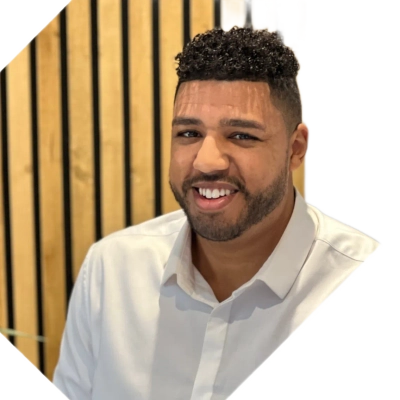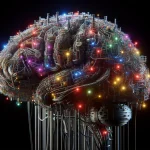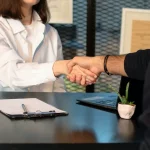15 Obstacles That Led to Discovering Your Passion and What They Teach About Self-Discovery
Facing obstacles on your journey to self-discovery can reveal unexpected passions and profound insights, as demonstrated by experts who transformed their challenges into opportunities. Their experiences across diverse fields show how difficulties often serve as catalysts for uncovering one’s true calling. These real-world stories illuminate how confronting career shifts, personal burnout, and uncertainty can lead to authentic purpose and professional fulfillment.
- From Hidden Self to Authentic Life
- Personal Burnout Led to Professional Transformation
- Body Healing Journey Uncovered My Calling
- Cultural Differences Became My Clinical Strength
- Tea Ritual Revealed My True Passion
- Career Risk Unlocked Love for Hospitality
- Frustration With Corporate Life Fueled Change
- Ultramarathon Taught Me to Push Limits
- Embracing Uncertainty Clarified My True Direction
- Breaking Marketing Silos for Business Success
- Career Shift Revealed Purpose Through Discomfort
- Following My Voice Against Family Expectations
- Athletic Past Shaped My Medical Mission
- Order From Chaos Sparked My Passion
- Obstacles Serve as Passion Accelerators
From Hidden Self to Authentic Life
My biggest obstacle was living as two completely different people — the “good girl” who was praised versus the authentic me who had to stay hidden. I was adopted and learned early that my real emotions were “wrong,” so I became expert at people-pleasing while my true self was bursting at the seams.
This split nearly destroyed me in my early twenties. I was running from myself constantly, staying numb and distracted, letting people with bad intentions into my life because I had zero sense of who I actually was. I hit rock bottom lying on my kitchen floor, crying uncontrollably, until I heard a small voice say “enough.”
That breakdown became my breakthrough into therapy work. I had to literally learn the ABCs of being human again — figuring out what I liked, how I felt, rebuilding from scratch rather than just fixing what was broken. The process taught me that belonging to yourself matters more than fitting in anywhere else.
Now I help clients who are stuck in similar patterns of hiding their authentic selves. When someone tells me they feel like they’re living two different lives or don’t even know what they actually want anymore, I know exactly where they are because I’ve been there. That lived experience of complete reconstruction is what makes my work effective.
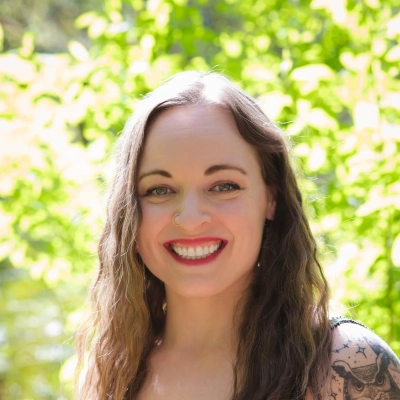
Personal Burnout Led to Professional Transformation
The biggest obstacle I faced was during my doctoral training when I experienced severe burnout myself. I was working excessive hours, saying yes to everything, and completely ignoring my own mental health principles. The irony wasn’t lost on me — here I was training to help others with psychological distress while completely failing to manage my own.
This breakdown forced me to step back and actually apply the research I was studying. I implemented the same structure and boundary-setting strategies I now teach clients dealing with burnout syndrome. I had to learn that saying no wasn’t professional weakness — it was essential for sustainable practice.
What emerged from this crisis was my finding of Lacanian psychoanalysis. Instead of just managing symptoms like I’d been taught, I became fascinated with understanding the deeper unconscious patterns that drive our repetitive behaviors. This shift from quick fixes to genuine structural change became the foundation of my entire clinical approach.
The lesson was profound: you can’t guide others through territories you haven’t mapped yourself. That personal struggle with burnout taught me that the most meaningful therapeutic work happens when we stop avoiding difficult questions and start sitting with them. It’s why I now tell clients that analysis isn’t about solutions — it’s about uncovering what’s really driving the patterns that keep us stuck.
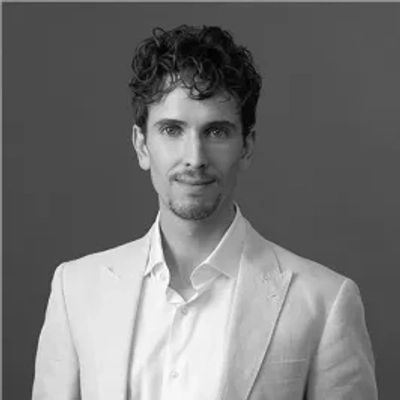
Body Healing Journey Uncovered My Calling
A significant obstacle I overcame was recovering from an eating disorder in my early years. During that time, I felt completely disconnected from my body and tried to control everything through sheer willpower. That struggle eventually led me to yoga, where I first experienced what it truly meant to feel safe in my body again.
Through this healing journey, I discovered nervous system regulation and somatic healing work, which unexpectedly became both my passion and my career. What this taught me about self-discovery is profound: our greatest insights often emerge from our most challenging moments. When we finally stop fighting against ourselves, we uncover the very gifts we’re meant to share with others. The path to finding your purpose isn’t always straight or comfortable, but the difficult parts can guide you to exactly where you need to be.
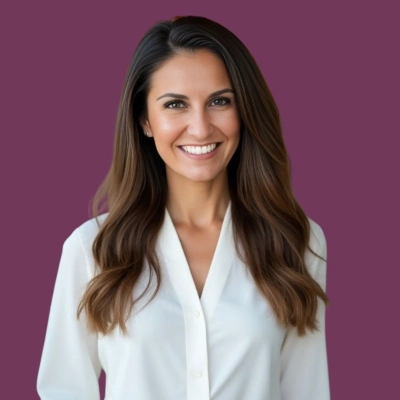
Cultural Differences Became My Clinical Strength
The most significant obstacle I overcame wasn’t in a textbook; it was a profound sense of being an outsider during my medical training. My cultural background was different from many of my peers and patients, and I initially saw this as a liability. I worried it created a gap that would prevent me from truly connecting with the people I wanted to help, which led to a quiet but persistent feeling of self-doubt.
My passion for psychiatry was discovered when I stopped seeing that gap as a barrier and started seeing it as a bridge. Because I couldn’t rely on shared cultural assumptions, I was forced to listen more intently. I had to ask better questions and work harder to understand each patient’s unique world. I realized that true healing doesn’t happen by treating symptoms, but by understanding a person’s story. That obstacle became my training ground for empathy.
This taught me the most crucial lesson about self-discovery: your greatest perceived weaknesses are often the seeds of your most authentic strengths. The journey isn’t about shedding the parts of you that feel different. It’s about learning how those very differences equip you with a unique perspective and a deeper sense of purpose that no one else can replicate.

Tea Ritual Revealed My True Passion
A couple of years back, I experienced what I refer to as “productive burnout.” My digital marketing career seemed perfect on resume: campaigns running, email inbox within bounds, but I was on autopilot. I didn’t dislike the job. There just wasn’t anything that engaged me. That grinding, gentle detachment turned into a much bigger question: If this isn’t it, then what is?
The hindrance wasn’t a catastrophic failure, it was lethargy. And for a person who was accustomed to pursuit of metrics and to-do lists, that sort of inertia was disturbing. So I resorted to that which any overachiever-in-recovery might: attempted to rectify with further optimization: podcasts, career texts, journal hacks.
Nothing of it succeeded.
But then one evening, I made a cup of oolong tea natively. Not with a microwave mug and off-the-counter pack, but with loose leaf, water of proper temperature, and a basic gaiwan. Fifteen minutes, three pours, no screens. It wasn’t life-altering in the moment, but I can recall feeling: This is mine.
That small action was a ritual of life. Then a weekend pastime. Thereafter, Summit Breeze Tea became a company, of course, but something else besides: a craft that I love.
The moral? Sometimes your heart isn’t buried beneath hurt. It’s masked beneath distractions. You don’t always uncover it by gritting your teeth. Sometimes, you uncover it by observing what softly ignites you, and creating space for it to breathe.
So don’t wait until you have a breakdown, then try boiling water, gently. That helped me.

Career Risk Unlocked Love for Hospitality
One of the main hurdles that I overcame was the uncertainty of leaving an established career to step into something more nebulous. Prior to co-founding my company, I struggled with a fear of failure and the discomfort of embarking on a new career for which I had limited formal experience. Leaving the stability of my former career to engage in that unknown situation, however, turned out to be the moment that exposed my deep love for hospitality and what it meant to create meaningful experiences around coffee. The discomfort of navigating the unknown situation grew my resilience and clarified the type of work that made me feel like I was truly living.
This set of experiences taught me that processes of discovery don’t often look linear, and that we are required to endure discomfort and have trust that trial and error will clarify what feels right. Often, we don’t find true passion in the safety of what we already know, but rather in the risks we are willing to take to venture into the unknown.
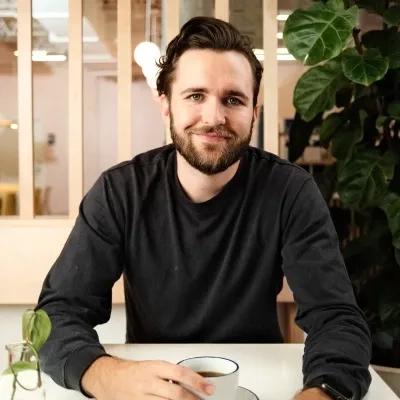
Frustration With Corporate Life Fueled Change
The most significant barrier I faced in my journey was getting stuck in corporate jobs that were comfortable but didn’t quite excite me. I was “succeeding” by all the traditional metrics: hitting numbers, climbing the ladder, etc. It just didn’t feel meaningful to me. The real inflection point for me was when I finally got to the point where I was mad at myself for spending 60 hours a week, week after week, helping build someone else’s dream. My dream was sitting on the sidelines just wishing it had someone to take on something with it. That moment of pain was where I was finally able to be creative about what would make food and tech and business intersect in a way that would be meaningful to me. Starting my business was a giant leap of faith, but the pain of not doing it was so much worse than the fear of failure.
I think the biggest lesson I’ve learned is that passion isn’t something that shows up while you are comfortable or complacent. It usually only comes when you’ve hit a level of frustration where you give yourself permission to figure out how to solve a problem on your terms. I also think that barrier taught me that the journey of self-discovery isn’t some zen meditation exercise, but is rather formed in the pressure of realizing you simply can’t stand the current situation any longer. When I finally reached that point, building Food Truck Club became more than just a job.
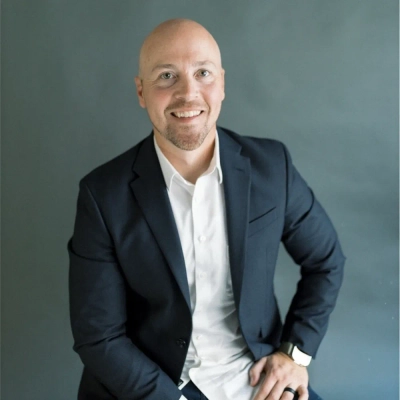
Ultramarathon Taught Me to Push Limits
My first ultramarathon nearly broke me. I was under-trained, sleep-deprived, and hallucinating halfway through Madeira’s mountains. But crossing that finish line showed me something I hadn’t realized before. My real passion is pushing limits, whether in running or business. The obstacle wasn’t the distance. It was believing I was the sort of guy who could never finish. Lesson? Self-discovery is usually hiding behind the version of yourself you’ve convinced yourself you’re not.

Embracing Uncertainty Clarified My True Direction
For me, the obstacle that shaped my journey most was the feeling of being stuck between ambition and uncertainty in the early days of my business. I had the skills and interest in AI, but I was surrounded by doubts: was the market too crowded, was I stretching too thin, would clients trust a new company in such a competitive space? That tension felt like an obstacle I couldn’t shake, and there were moments when walking away seemed easier.
But instead of stepping back, I leaned into the discomfort by taking on projects that scared me, like pitching to established players in insurance when we were still a young startup. The surprising thing was that in those moments of risk, I discovered my passion wasn’t just in building AI systems, but in translating complex technology into real-world value for people who needed it most. That clarity didn’t come from comfort; it came from wrestling with doubt.
The lesson I took away is that self-discovery rarely happens in smooth, linear steps. It’s often the obstacles — the setbacks, the doubts, the uncomfortable leaps — that strip away assumptions and reveal what actually drives you. In my case, it taught me that passion is less about what you can do and more about what you’re willing to fight through uncertainty to keep doing.
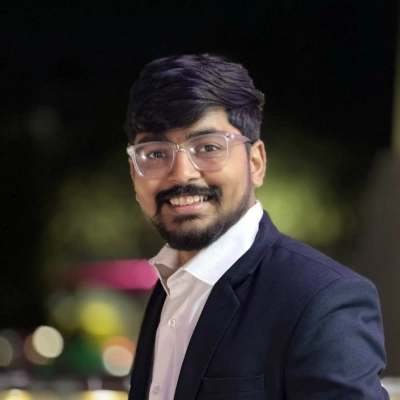
Breaking Marketing Silos for Business Success
A lot of aspiring professionals think that to find their passion, they have to be a master of a single skill. They focus on being the best at one specific thing. But that’s a huge mistake. A person’s value isn’t to be a master of a single channel. Their value is to be a master of the entire business of life.
The significant obstacle I overcame was being stuck in a marketing silo. I was focused only on brand messaging and lead generation, and I didn’t understand the rest of the business. I was a good marketer, but I wasn’t a leader. The obstacle was the disconnect between my work and the company’s profitability. This ultimately led me to discover my passion for connecting the entire business.
The lesson this taught me was to learn the language of operations. I stopped thinking like a marketer and started thinking like a business leader. My job wasn’t just to bring in new customers. It was to make sure that the company could actually fulfill those orders profitably.
I started spending time in the warehouse and talking to the operations team. I learned about the cost of a part, the time it takes to ship it, and the challenges of the supply chain. The best marketing campaign in the world is a failure if the operations team can’t deliver on the promise.
The journey of self-discovery taught me that my passion wasn’t just in marketing; it was in understanding and connecting every part of the business to make it work. The best way to be a leader is to understand every part of the business. Stop thinking of your passion as a separate, single skill. You have to see it as a part of a larger, more complex system. That’s a professional who is positioned for success.

Career Shift Revealed Purpose Through Discomfort
One significant obstacle I overcame was navigating the early uncertainty of leaving a stable career path to pursue something I was deeply passionate about: pet care. There were moments of doubt, but those challenges pushed me to build my company with resilience and purpose. Through that journey, I discovered that my true passion lies in creating safe, loving environments for pets while supporting pet parents. The biggest lesson it taught me is that self-discovery often comes through discomfort — what feels like a setback can actually open the door to uncovering your purpose.
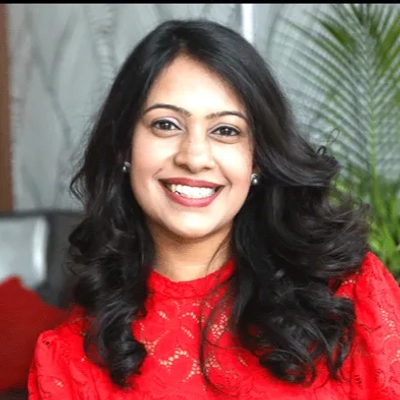
Following My Voice Against Family Expectations
Back in college, I was drawn to SEO, but my parents insisted I pursue engineering. I gave in to the pressure, but no matter how hard I tried, I couldn’t find interest in it. After a series of failures, I realized I couldn’t keep living someone else’s dream. One day, I sat down with my parents, explained how strongly I felt, and decided to follow my passion for SEO. That single choice changed everything. I finally felt I was doing something that came naturally to me.
The experience taught me a powerful lesson: you can’t discover yourself by living through the expectations of others. Family and society may guide you, but at the end of the day, only you know where your heart belongs. Passion isn’t something you can force; it reveals itself when you have the courage to listen to your own voice. Self-discovery is not about pleasing everyone; it’s about taking ownership of your path, even if it feels risky. That’s where fulfillment truly begins.
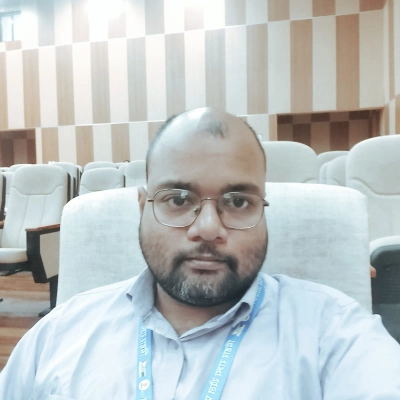
Athletic Past Shaped My Medical Mission
I arrived in the U.S. when I was 12 with ambitions of becoming a football star. I moved to Division I, possessed all the discipline, all the work ethic, and everything appeared to be in line. However, as my career as a footballer progressed, I began to wonder what sort of an impression I wanted to leave in other areas of life, and it was the organized thinking and performance mentality that began in athletics and was based on.
My move into nursing made me open my eyes to something that will make an impact. This was me, a former athlete, and I was learning how to attend to patients during the times they are in need. I learned the extent to which someone like me could influence the quality of life of another person, and that was after dealing with men who had lost hope over their health and vitality.
That experience made me understand that passion is not necessarily the only thing that you have to work on. The reason why I discovered my true calling is by observing what made me feel energized every day, and that is the idea of men who have gained their strength and confidence through humane treatments and hormones I am prescribing, helping them regain their confidence.
What you can get from my story is that what you do not expect you’d like usually turns out to be something much better than you had initially imagined. Each experience is tailored to the real purpose, and I had used the same principle in my practice today with patients who feel stuck in their health process, and I help them see that they are actually on the verge of their breakthrough.
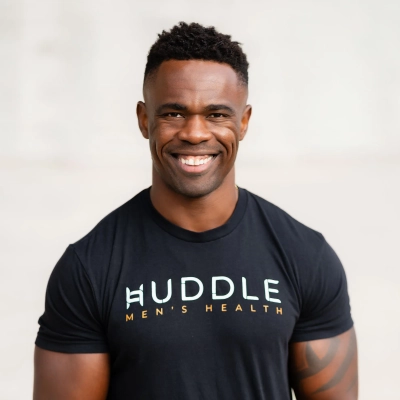
Order From Chaos Sparked My Passion
I once got into a project that had no budget whatsoever and the burden of a full-scale campaign. The place was littered with old-fashioned plugins, duplicated information, and hundreds of errors that were avoided over the years. I had already done weeks of sorting everything out manually, and I was working late at night and early in the morning to get everything operational again. Initially, I believed that I had done something wrong, but somewhere in the process, I began to like the whole process of bringing order to chaos.
Eventually, it demonstrated something significant to me. Passion does not necessarily come at the first step; in many cases, it opens its doors after you overcome frustration. Those lengthy days provided me with the understanding of what type of work I am designed to deal with and why I prefer solving problems that other people do not like. I say, the hardest things to do usually teach the best lessons.
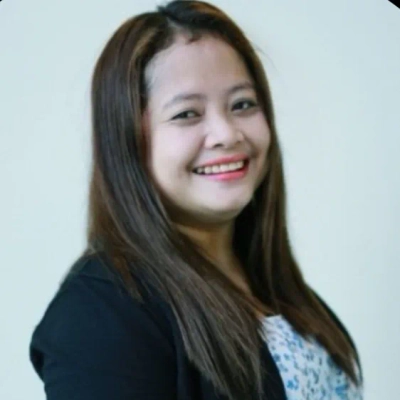
Obstacles Serve as Passion Accelerators
When I was in this process, one of the hardest struggles was the seeming futility of feeling like I was working really hard without something to show for it. It’s incapacitating when you feel that your results aren’t under your influence or control, and I would begin to question whether I was even in the right field in the first place.
The shift happened when I gave up on quick wins and instead started bringing gentler strategies that were clear and flexible for the long-term. That not only changed my results, it changed my experience with the work itself.
The biggest insight I had is that obstacles aren’t failures, they are accelerators. They force you to think, to refine, to modify and ultimately find the work that connects and inspires you from a true place.
